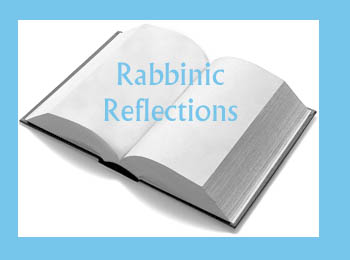The Chanukah menorah is such a beautiful sight! Every night we add a new flame until we have eight in a straight row. The shamash is also part of the chanukiyah, yet it’s not next to all the other flames. It has a unique placement. It’s not permitted to be in the same row as the rest, and many chanukiyot are designed with the shamash higher than the rest. Why the special treatment?
To better understand the uniqueness of the shamash, we need to know what the word “shamash” means. The best way to understand what a word means is by looking at the first time the word is mentioned in the Torah. At the covenant between the parts between God and Abraham (Bereshit 15, 12) we read, “Vayehi hashemesh lavo” – and the shemesh was setting. This is the first time the Torah refers to that “Great light to rule by day” (Bereshit 1, 16) – the sun – as the shemesh. How strange! The word shemesh literally means a servant. Why is the Torah referring to the mighty great light that rules by day as a servant?
More importantly, why does the Torah refer to the sun as the shemesh in relation to a covenant that God made with Abraham? Abraham lived in a pagan world that attributed divinity to anything that exerted power over mankind. Abraham’s contribution to the world was that he understood that no matter how powerful anything may be – even if it is a “great light” that rules by day, that heats up and illuminates the entire solar system and provides photosynthesis, enabling life on earth – it’s still a shemesh, a servant of God.
Abraham understood that everything in the universe has a purpose through its connection to serving God to make the world a place where the Divine presence can reside. Everything has the ability to mirror the kindness of God in this world. Abraham’s entire life was a manifestation of being the ultimate human shemesh, as he introduced kindness to the world. When everything in the universe is perceived by mankind as a servant of God’s kindness to the world, then the world has achieved its purpose. Disconnecting powerful things from the ultimate source leads to paganism. Abraham succeeded to such an extent that God desired to make an eternal covenant with him and promised him the Land of Israel. This is the best time to introduce to the world what the most powerful force in our universe really is – a shemesh, a servant.
The Chanukah story involves the battle between the pagan forces of Greece and the Jewish belief that everything serves God. The chanukiyah is a symbol of Jewish victory, that God indeed runs the world and can make oil miraculously burn for eight days, hence the eight flames. But those eight flames cannot represent anything if there’s nothing to serve them and enable them to illuminate.
The shamash fits that role. There’s no mitzvah to light a shamash, but without its dutiful sole existence of serving God to enable the mitzvah to be done, we would have no light at all. Something or someone that focuses on the will of God alone deserves special treatment, and, yes, to even be higher than all the rest.
Rabbi Yossi Michalowicz is spiritual leader of the Westmount Shul in Thornhill, Ont.
